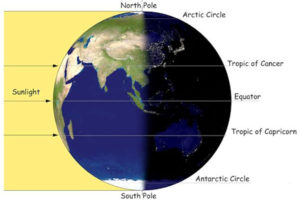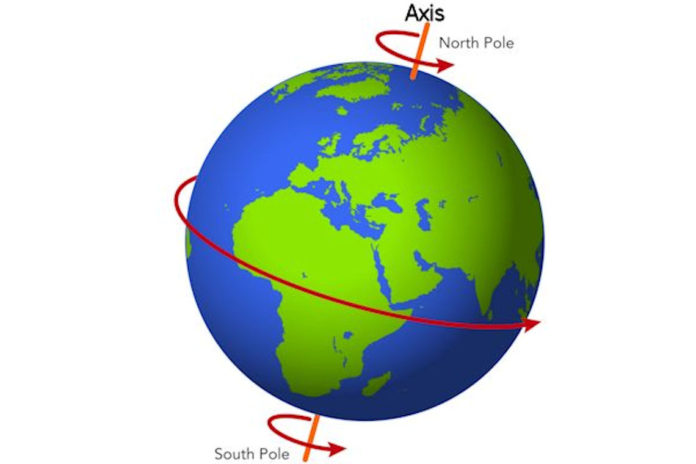The rotation of the Earth is the cause of our days and nights. The Earth rotates around its axis. The axis is an imaginary line that runs from the North to South Poles through the Earth’s center. One rotation takes 24 hours to complete. A solar day is the amount of time needed for the Earth to make one rotation.
Elements of the Earth’s Rotation
The Earth’s Axis and Solar Day
The line from the North Pole to the South Pole (through the center of the earth) is the Earth’s axis. The earth rotates around this axis. The planet makes one complete rotation every 24 hours. This is one solar day. However, due to the effects of the moon, the length of one solar day is slowly increasing by a few milliseconds each century.

Daylight and Darkness
As Earth makes one complete rotation, half of the planet is exposed to the sun. This half of the planet experiences daylight. The other half of the planet facing away from the sun experiences darkness. In this manner, the rotation of the Earth around its axis is responsible for days and nights.
Direction of Rotation
The Earth rotates from the west to the east. It rotates in a counter-clockwise direction when viewed from space (above the North Pole). As a result, the sun rises in the east and sets in the west.
Cause of the Rotation
The Earth was formed from a cloud of gas and dust. As the gas and dust collapsed the momentum of these particles caused the cloud to spin. Momentum is the energy of a moving object. The collision of the Earth and Theia also contributed to this effect.
Reflections
Vocabulary
- axis
- rotation
- solar day
Notes
- The axis is the line running through the Earth from the North Pole to the South pole.
- The earth rotates around its axis every 24 hours.
- The earth’s rotation is responsible for days and nights.

